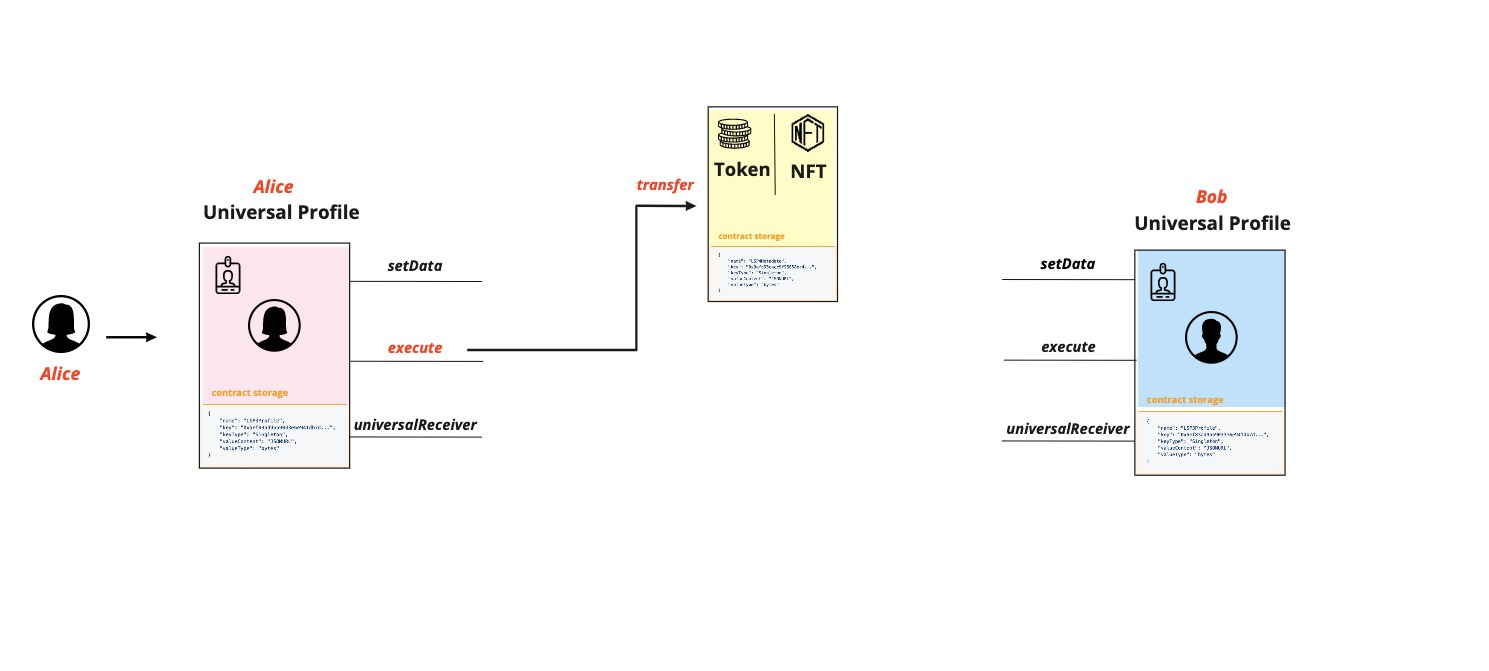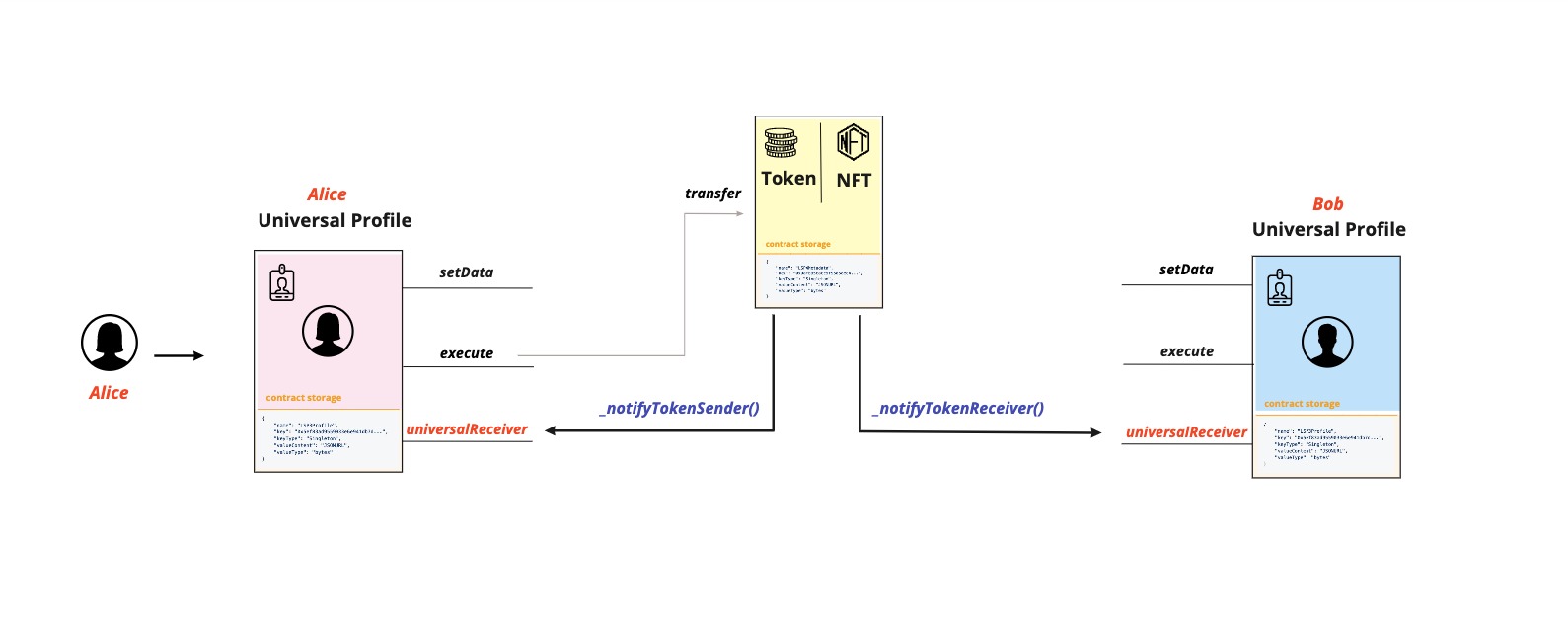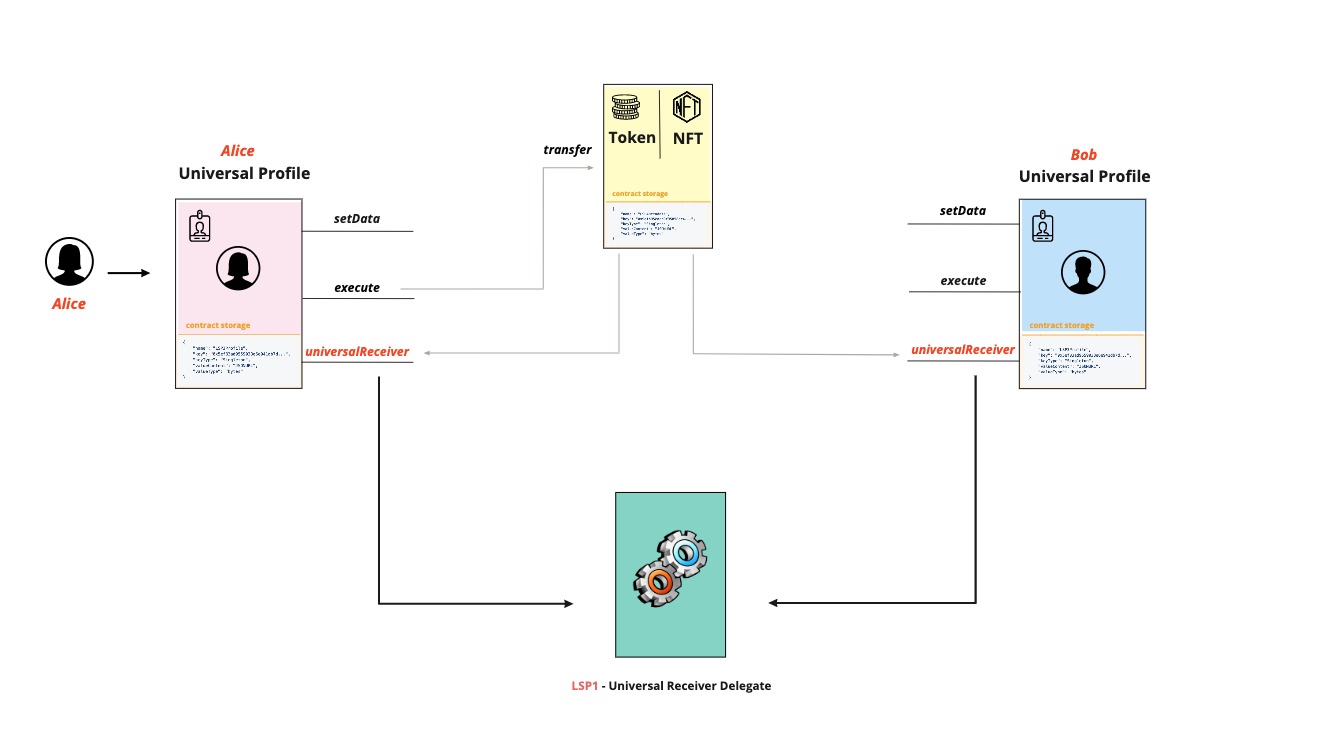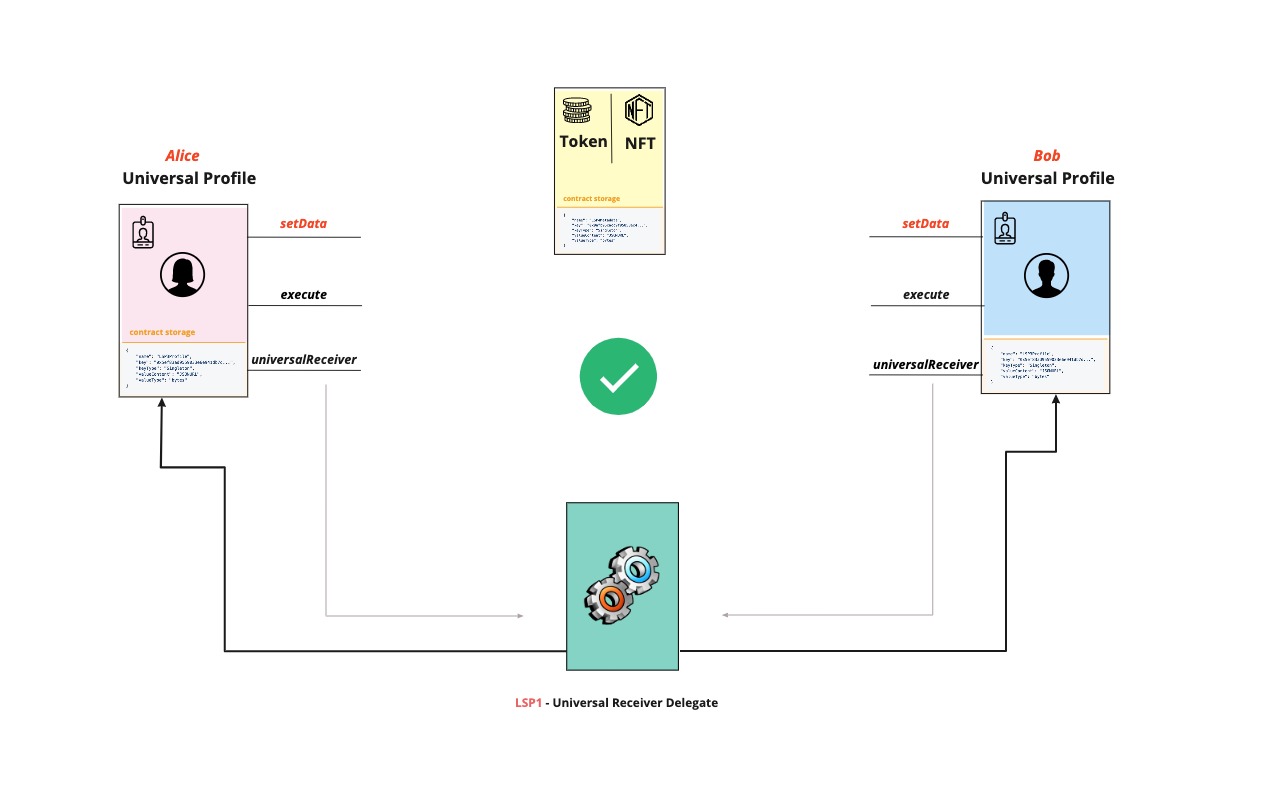LSP1 - Universal Receiver Delegate
To better understand this standard, it is well-advised first to check the origin standard LSP1-UniversalReceiver.
Introduction
Once deployed, the code of a smart contract can not be changed. However, builders can decide how their smart contracts implement the universalReceiver(...) function.
Therefore, it is advised not to hardcode how the smart contract should handle and react to specific calls inside the universalReceiver(...) function. Instead, it should delegate this functionality to another external contract. Developers could then customize such contracts to implement a specific logic, that is changeable anytime by updating the reference to a new contract in the universalReceiver(..) function.
What does this standard represent ?
Specification
Smart contracts implementing the LSP1-UniversalReceiverDelegate standard SHOULD register the LSP1UniversalReceiverDelegate InterfaceId using ERC165. This way, other contracts can be aware that the contract supports the LSP1-UniversalReceiverDelegate standard.
This standard defines a contract called UniversalReceiverDelegate containing a single function named universalReceiverDelegate(...) that should be called by the universalReceiver(..) function with:
-
address
calleris the address calling theuniversalReceiverfunction. -
uint256
valueis the amount of value sent to theuniversalReceiverfunction. -
bytes32
typeId: the typeId passed to theuniversalReceiver(...)function. -
bytes
data: the data passed to theuniversalReceiver(...)function.
How Delegation works
Delegation in the context of smart contracts implementing the universalReceiver(...) function allows for flexibility in handling specific calls without hardcoding the logic within the primary contract. While the exact implementation of delegation is up to the individual contract, there are some common steps involved in the process.
1- Query the UniversalReceiverDelegate address: Typically, the address of the UniversalReceiverDelegate contract is stored in the primary contract's storage. When the universalReceiver(...) function is called, the address is retrieved to facilitate delegation.
2- Check for LSP1Delegate support: Before making any calls to the UniversalReceiverDelegate contract, it's essential to ensure that the contract supports the LSP1Delegate standard. This can be done by checking for the LSP1UniversalReceiverDelegate InterfaceId using ERC165.
3- Call the UniversalReceiverDelegate's universalReceiverDelegate(..) function: Once LSP1Delegate support is confirmed, the primary contract's universalReceiver(...) function can delegate the call to the UniversalReceiverDelegate's universalReceiverDelegate(...) function. This allows the primary contract to utilize the logic implemented in the delegate contract.
Delegation can be implemented in various ways, depending on the developer's requirements. Some possible delegation strategies include:
-
Single delegation: The primary contract delegates all calls to a single UniversalReceiverDelegate contract.
-
Multiple delegation: Different calls are delegated to different UniversalReceiverDelegate contracts based on specific conditions, such as the typeId.
-
Mixed delegation: A combination of single and multiple delegation strategies can be used, where some calls are delegated to a single contract, while others are delegated to different contracts based on specific conditions.
In summary, delegation provides a flexible way for smart contracts to handle and react to specific calls, allowing developers to update the logic without altering the primary contract's code. This approach is particularly useful when working with the universalReceiver(...) function and implementing the LSP1 standard.
Implementations
There are several implementations of the standard. The LSP1UniversalReceiverDelegateUP contract is one of them and is used as a delegate to the universalReceiver(...) function of UniversalProfile contract.
At the moment, this contract allows to:
- receive and send tokens & vaults
- register the data keys representing them according to LSP5-ReceivedAssets and LSP10-ReceivedVaults Standards.
Token transfer scenario
One of the possible scenarios is a token transfer between Alice and Bob. Alice wants to transfer a token owned by her Universal Profile to the Universal Profile of her friend Bob.
1. It calls the transfer(...) function on the token contract.

2. The transfer(...) function on the token contract will directly trigger a hook that will call the universalReceiver(...) function on both sender and recipient Universal Profiles.

3. 3. If the UniversalReceiverDelegate contract is set, it will be called by the universalReceiver(...) function and will execute its custom logic.

4. The UniversalReceiverDelegate of Universal Profile allows the transfer and set LSP5-ReceivedAssets data keys on both Profiles.

For the UniversalReceiverDelegate to be able to call setData function on the UniversalProfile, it should be allowed by the logic of the owner through LSP20.
Data Keys
LSP1UniversalReceiverDelegate Singleton
{
"name": "LSP1UniversalReceiverDelegate",
"key": "0x0cfc51aec37c55a4d0b1a65c6255c4bf2fbdf6277f3cc0730c45b828b6db8b47",
"keyType": "Singleton",
"valueType": "address",
"valueContent": "Address"
}
LSP1UniversalReceiverDelegate Mapping
{
"name": "LSP1UniversalReceiverDelegate:<bytes32>",
"key": "0x0cfc51aec37c55a4d0b10000<bytes32>",
"keyType": "Mapping",
"valueType": "address",
"valueContent": "Address"
}